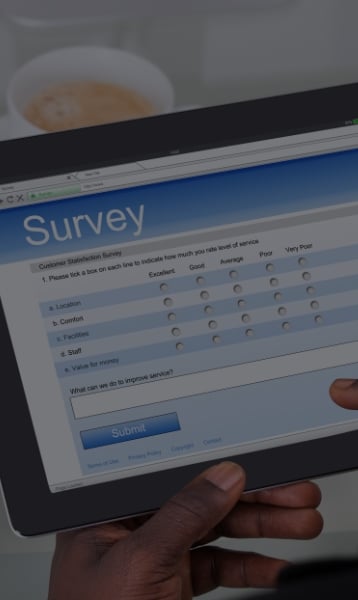The benchmarking portal gives you access to all reports available for STD, LTD, FML & WC.
Remote and Hybrid Employees Report Improved Productivity, Satisfaction, and Engagement, According to IBI Analysis
.jpg?width=900&name=pexels-andrew-neel-2682452%20(1).jpg)

Jennifer Santisi
Employees also report challenges; juggling family responsibilities, difficult communication with supervisors, increased hours
Navigating a remote or hybrid workforce is a top challenge for many employers, as studies show that the number of employees who are choosing to work from home has sharply risen since 2020. To help employers better understand the challenges that American workers face in a hybrid/remote work environment, the Integrated Benefits Institute analyzed data on the successes and challenges faced by employees.
According to data from the Pew Research Center’s American Trends Panel, employees who work remotely or in a hybrid environment indicate that they are more productive (21.8%), more satisfied (20.7%), and more highly engaged (50.8%).
That’s not to say there aren’t challenges. Many employees are battling for a home office space (23%), constant interruptions (43%), slow internet connections, isolation, a house in disarray, and a seemingly endless workday. Twenty seven percent find it harder to balance work and family responsibilities, nearly half report spending too little time with their children under 18, and 40% indicate that they spend too little time with their spouse. Some remote workers also feel disconnected from their colleagues (30%).
However, these challenges don’t outweigh the benefits, it just took some time getting into the routine of remote work. Two years into the pandemic, 44% indicate that working from home has made it easier for them to get work done and meet deadlines, only 10% say this has been more difficult. And 64% of those who transitioned to a remote or hybrid work arrangement say it’s easier now for them to balance work with their personal life.
More remote employees indicated that they were highly engaged (22%) compared to hybrid or in-person, and more in-person employees indicated that they were on the lower end of the engagement scale. Industries with above average high engagement include banking, finance, accounting, real estate, and insurance (38%), followed by professional, scientific, and technical services (34%).
What does this mean for employers?
IBI spoke to corporate health benefits professionals in a 60-minute focus group discussion, and common themes emerged. Discussants recommended:
Train managers and supervisors: The people closest to the employees must be trained to recognize indicators of burnout and how to point them to resources that may help. This may be more difficult to identify in a hybrid/remote environment, so it is especially important to provide specific training for leadership to watch and act to protect their teams from these struggles.
Provide flexibility to employees: Most employees have a preference of where and when they want to work. One of the things that employers can do to help mitigate burnout is to give employees as much schedule and location flexibility as possible. According to Pew Research Center, 45% of people surveyed say they left their job because of a lack of flexibility.
Respect employees’ boundaries: Regard for healthy boundaries should be baked into the culture. Employees need to be able to disconnect outside of working hours guilt-free. Encourage “no-work” vacation days.
Be aware of workloads: Managers should always be aware of workloads, especially if staffing has been reduced. Again, if there are signs of burnout, be proactive before the employee experiences negative health consequences.
Don’t disincentivize employee loyalty: In many cases, employees who stay with the company longer, are paid less than new employees. Optimize your compensation strategy by keeping salaries competitive.
For more information the report and infographic are available upon request, please contact Jennifer Santisi at jsantisi@ibiweb.org.
About Integrated Benefits Institute
The Integrated Benefit Institute’s independent research, industry-leading tools and data resources help companies link health-related programs to the outcomes that maximize the contributions of people to productivity and business performance. Founded in 1995, IBI is a national nonprofit research organization and business association serving 1,200 employer and supplier members and their 22 million employees. For additional information, please visit www.ibiweb.org and follow us on Twitter and LinkedIn.
###
- December 2024 (1)
- November 2024 (1)
- July 2024 (1)
- June 2024 (1)
- March 2024 (1)
- February 2024 (1)
- January 2024 (1)
- December 2023 (1)
- November 2023 (1)
- August 2023 (1)
- July 2023 (1)
- May 2023 (2)
- February 2023 (2)
- January 2023 (2)
- November 2022 (1)
- October 2022 (1)
- September 2022 (1)
- March 2022 (1)
- February 2022 (1)
- January 2022 (1)
- December 2021 (1)
- September 2021 (1)
- April 2021 (2)
- December 2020 (1)
- October 2020 (1)
- September 2020 (2)
- August 2020 (2)
- July 2020 (1)
- April 2020 (1)
- March 2020 (1)
- November 2019 (1)
- September 2019 (1)
- July 2019 (1)
- June 2019 (2)
- May 2019 (1)
- April 2019 (1)
- February 2019 (1)
- November 2018 (1)
- September 2018 (1)
- August 2018 (1)
- June 2018 (1)
- March 2018 (1)
- March 2017 (1)
- February 2017 (2)
- Absence (1)
- Absence Management (1)
- analytics (1)
- Behavioral Health (1)
- Benchmarking (2)
- Benchmarking Analytics (1)
- Benefit Design (2)
- Benefits + Plan Design (2)
- Blog (1)
- Business Performance (1)
- CDHP (1)
- CFO Survey (2)
- COVID-19 (6)
- Depression (3)
- director (1)
- Disability Leave (7)
- Extreme Weather (2)
- Family + Parental Leave (3)
- FMLA (2)
- Health + Productivity Management (3)
- Healthcare (1)
- Healthcare Costs (2)
- lost time (1)
- Manage Absence (2)
- Medication Adherence (1)
- Mental + Emotional Health (4)
- Mental Health (2)
- new hire (1)
- Parental / Family Leave (1)
- Patient-Centered (1)
- Press Releases (50)
- Preventive Care (1)
- Productivity (3)
- Research (2)
- Research Report (1)
- Return to Work (1)
- Sick Leave (2)
- Telehealth (1)
- Telemedicine (1)
- Worker's Compensation (1)
- Workplace Health Programs (1)




























